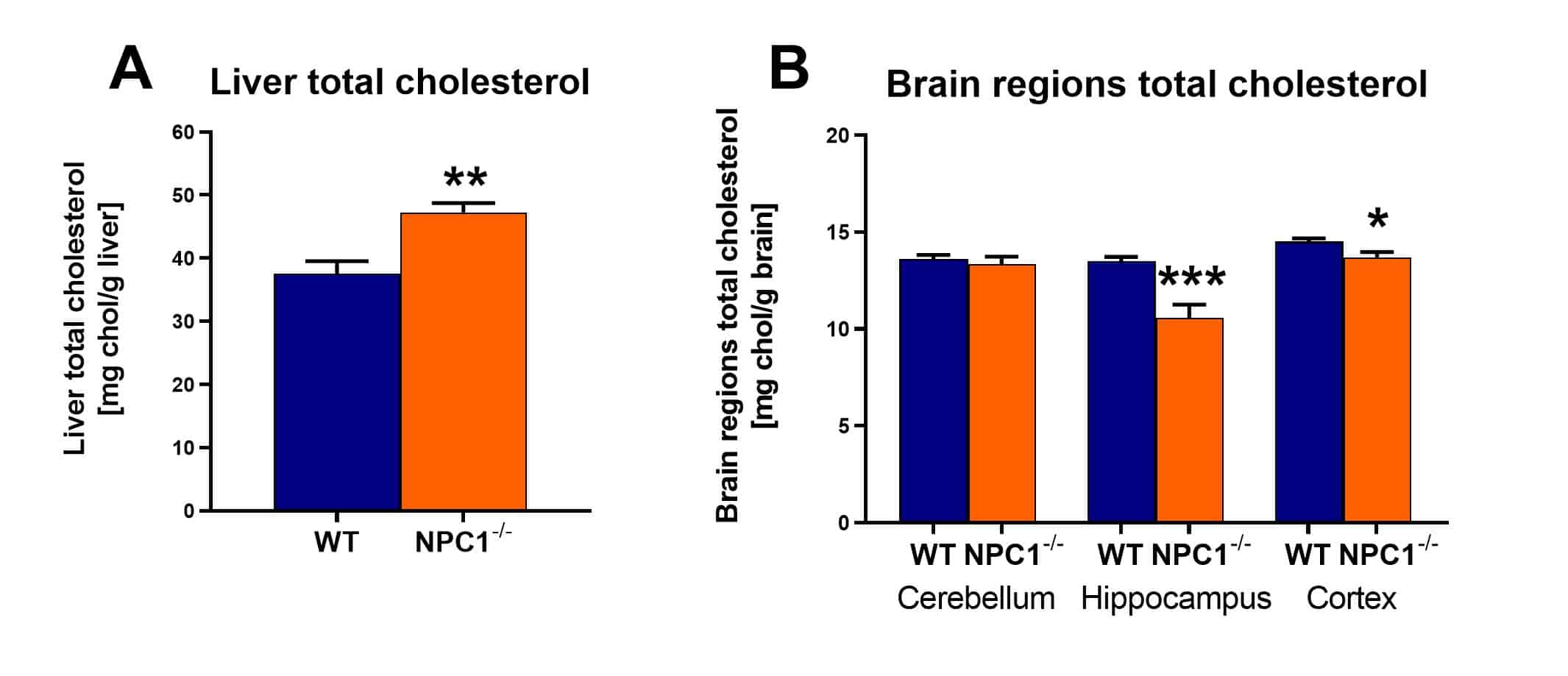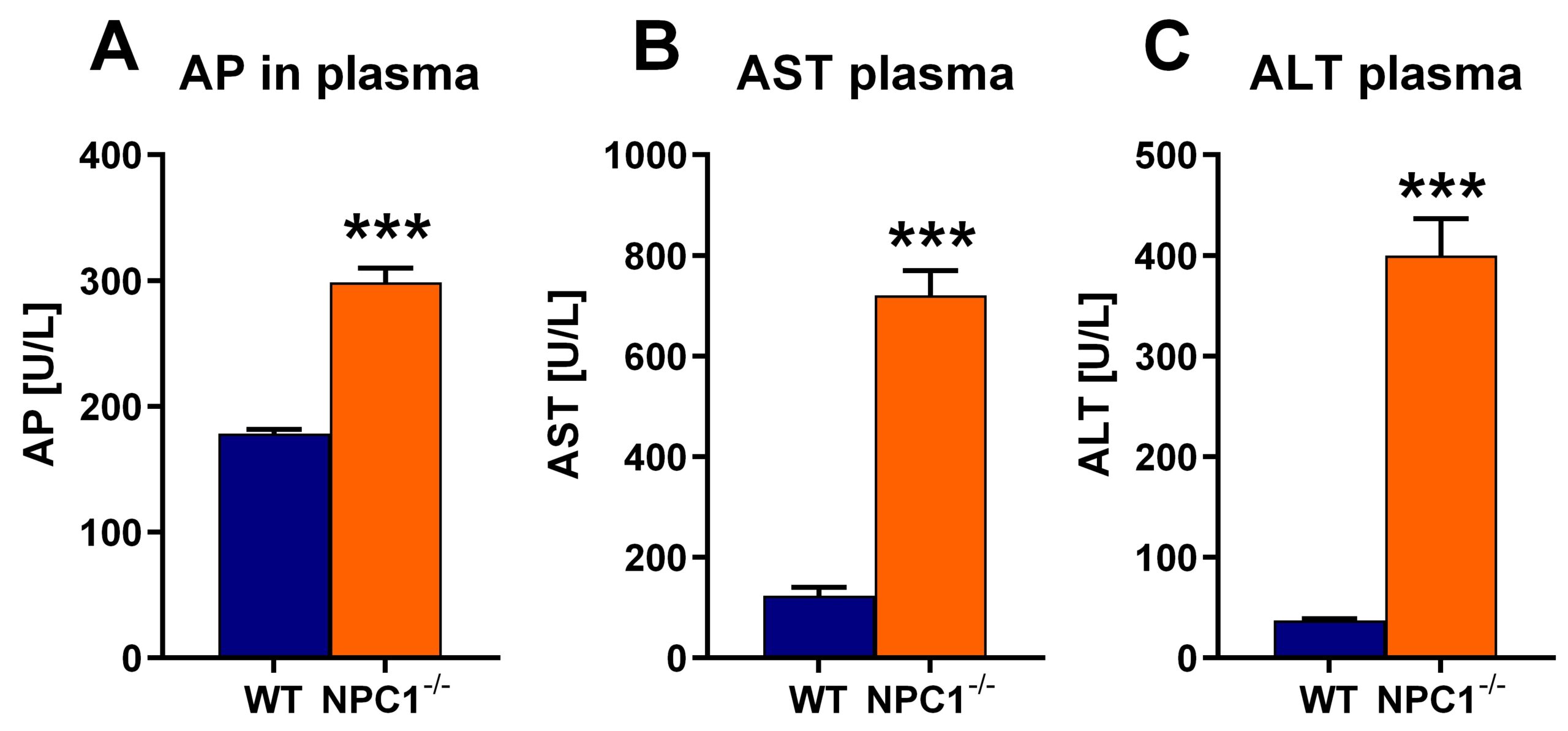Niemann-Pick disease type C1 is an inherited lysosomal storage disorder that affects the viscera and the central nervous system. The disease is caused by defective intracellular processing and transport of low-density lipoprotein-derived cholesterol and causes accumulation of cholesterol and other lipids in lysosomes, subsequently altering cholesterol homeostasis.
Mice homozygous for the recessive NIH allele of the Niemann Pick type C1 gene (Npc1m1N) show a dual deficiency of sphingomyelinase and glucocerebrosidase activity (JAX# 003092). Animals are bred on a BALB/c OlaHsd background. For a detailed characterization of this mouse model see our publication Santiago-Mujica et al., 2019.
Tissue Cholesterol Levels
Total cholesterol levels were assessed in the liver and distinct brain regions of 6-week old NPC1-/- and wildtype animals. While total cholesterol levels were significantly increased in the liver of NPC1-/- animals compared to wild type littermates (Fig. 1A), total cholesterol levels in distinct brain regions were decreased in NPC1-/- mice compared to wild type littermates (Fig. 1B).

Figure 1. Absence of NPC1 in mice causes changes in the tissue cholesterol content. NPC1 deletion in mice leads to cholesterol accumulation in the liver (A) and decreased total cholesterol levels in distinct brain regions (B). 6-week old NPC1-/-, n = 6 per group, mice of both sexes were used. Statistical analyses using unpaired t-test revealed significant differences in cholesterol levels between knockout and wild type animals. Mean + SEM; *p<0.05; **p<0.01; ***p<0.001.
Liver Enzymes in NPC1-/- Mice
The liver enzyme profile was assessed in the plasma of 7-week old NPC1-/- and wild type animals. Alkaline phosphatase (AP, Fig. 2A), aspartate aminotransferase (AST, Fig. 2B) and alanine aminotransferase (ALT, Fig. 2C) levels were significantly elevated in the plasma of NPC1-/- animals compared to wild type mice (Fig. 2).

Figure 2. Absence of NPC1 in mice influences liver enzyme levels. Plasma of NPC1-/- and wild type littermates were evaluated for AP (A), AST (B) and ALT (C). 7-week old NPC1-/-, n = 8 per group, male mice only. Statistical analyses using unpaired t-test revealed significant differences in liver enzyme levels between NPC1-/- and wild type animals. Mean + SEM; ***p<0.001.
QPS Neuropharmacology offers custom-tailored study designs for this model and we are flexible to accommodate your specific interest. NPC1-/- mice show relevant features of Niemann-Pick disease already at young age. This allows for extraordinarily fast turn-around times.
We would be happy to test your compounds in the NPC1-/- mouse model! The most common readouts are:
You might be also interested in these related topics:
QPS Neuropharmacology is also ready to provide samples (brain tissue, CSF etc.) from these animals for analyses in your laboratory.
